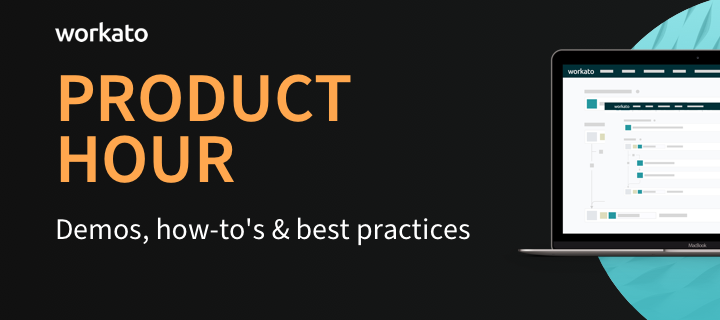Product Update – March 2020

March has been quite a month for everyone. We hope you and your families are all safe and well. The product team has continued rolling out several updates while we’re all hunkering down and staying indoors. Read on to learn how some of our customers are staying connected while working remotely across time zones, new updates to make batch processing easier, and how you can customize API URLs.
Make virtual-work, work for your team
With more of us working remotely from virtual offices, teams spread across geographies and timezones are feeling even more disconnected. Standup Bot makes it incredibly easy to keep teams in sync and engaged with daily check-ins.
Create simpler, more intuitive API URLs
Want to make the URLs for your APIs look more consistent with the rest of your site? Workato makes it quick and easy to set up and use a custom domain name so you can personalize your API URLs to match your corporate brand.
How it works
Just register a custom domain in Workato’s API Platform settings and you’re set. Once Workato verifies that you own the domain, the platform will kick start a workflow to provision a TLS certificate for your domain. This workflow can be completed within an hour and, often, within minutes. API users can start using your custom domain immediately.
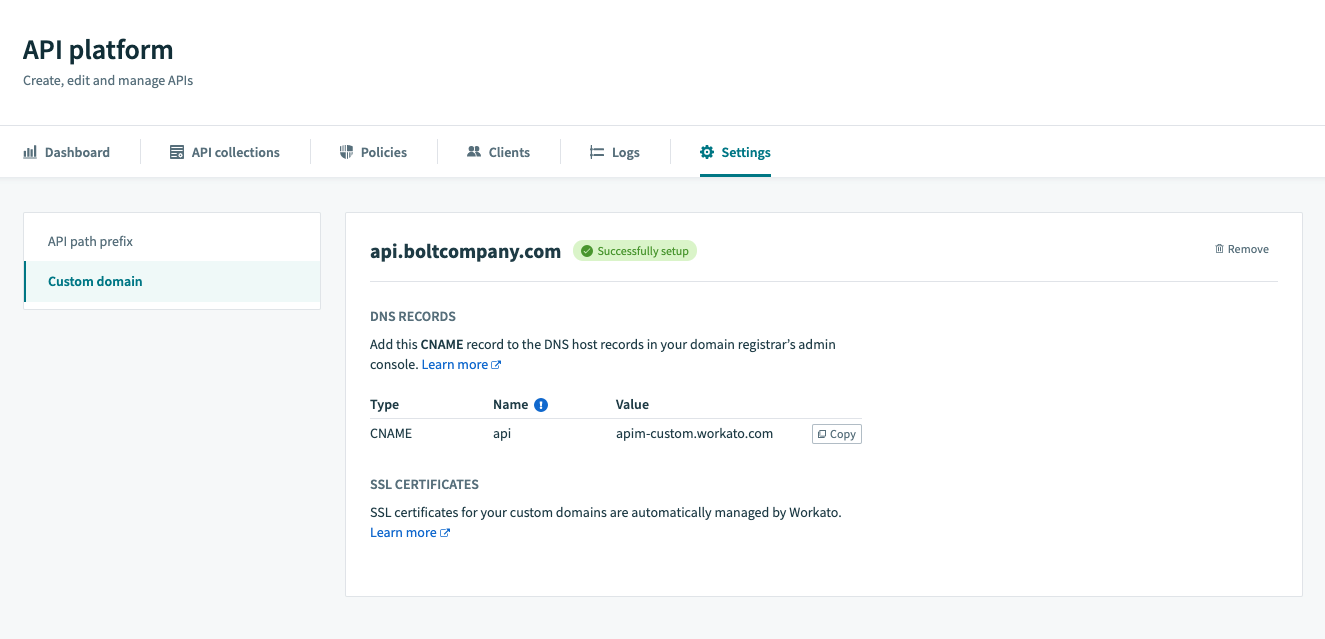
Create personalized custom domains easily and securely
Learn more about API custom domains
Even more secure Workbot for Microsoft Teams
Workbot for Microsoft Teams is a powerful tool that you can use to update opportunities in Salesforce, approve expenses in Concur, assign tickets in ServiceNow, and more. Now, by selecting the “Verify user access at runtime” option, Workbot authenticates user credentials before carrying out these actions on the user’s behalf. This ensures that actions carried out by the recipe in the connected apps are done using the authenticated users’ identity and permissions.
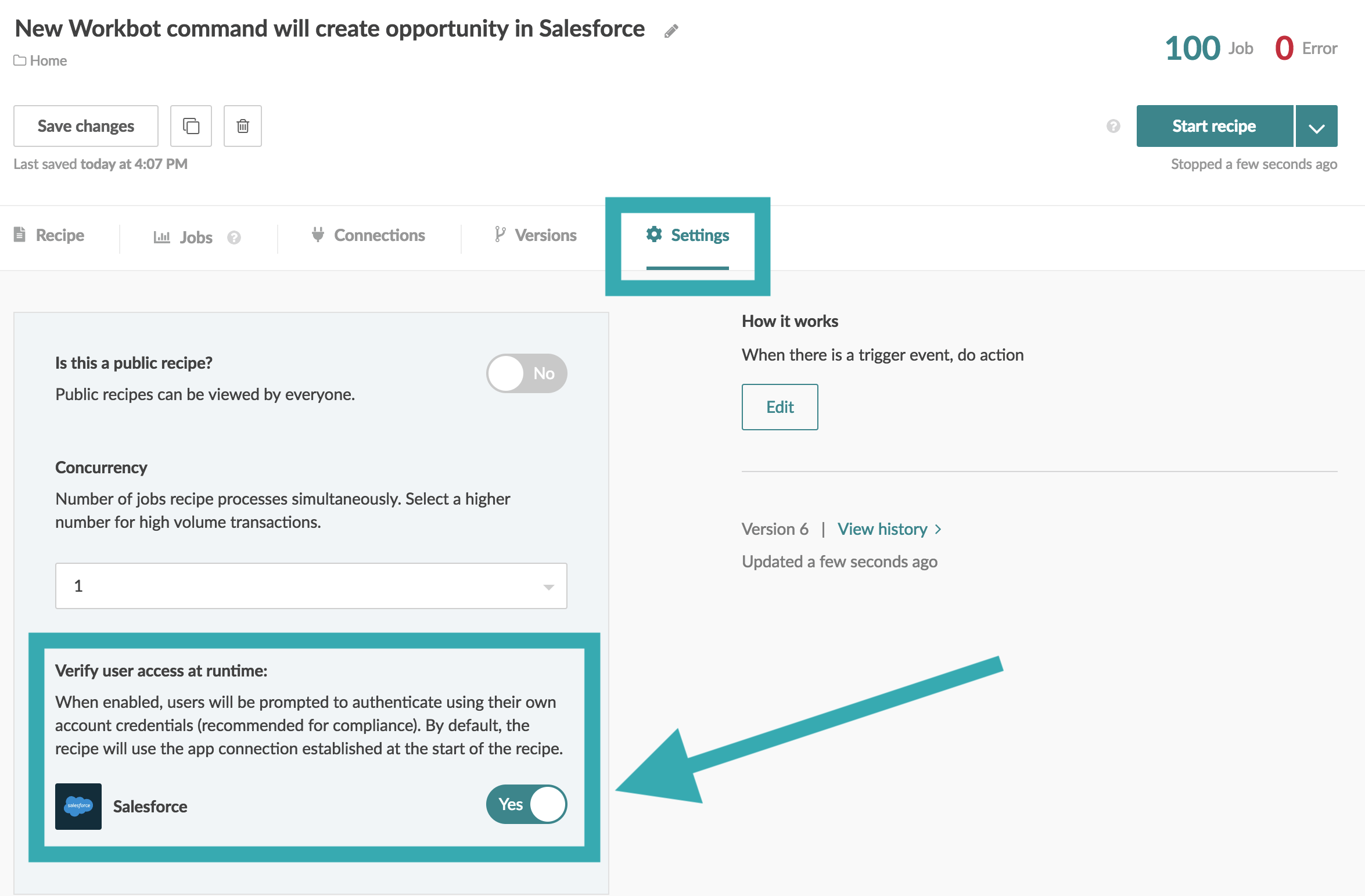
Verifying user access at runtime ensures user have access to the actions they want to run
Learn more about Workbot for Microsoft Teams
Process large volumes of data in batches
We just released a powerful new feature called “Repeat in Batches.” When moving large amounts of data between apps, sometimes the upstream app publishing data has a larger batch size than the batch size of the downstream app consuming the data. The “Repeat in Batches” feature enables users to easily process such a data movement without having to build extra recipe logic, saving time on build and maintenance, and reducing the risk of error.
How it works:
Processing data in batches (i.e. thousands of rows at a time) is essential for higher throughput and efficiency for many common use cases including:
- Syncing data between apps like Salesforce and NetSuite
- Ingesting lead data from CSV files into an app like Marketo
- Building ETL pipelines to load into data warehouse tables
However, sometimes the upstream app publishing data has a larger batch size than the batch size of the downstream app consuming the data. When there’s a mismatch, complex logic is required to manage the data flow.
The new Repeat in Batches action streamlines all that complexity. Just select the “Create records in batches” action within a “For Each” loop to set up the batch process, and select the number of rows you want it to apply to. (You can even set it to choose the batch size dynamically — say, depending on account properties.)
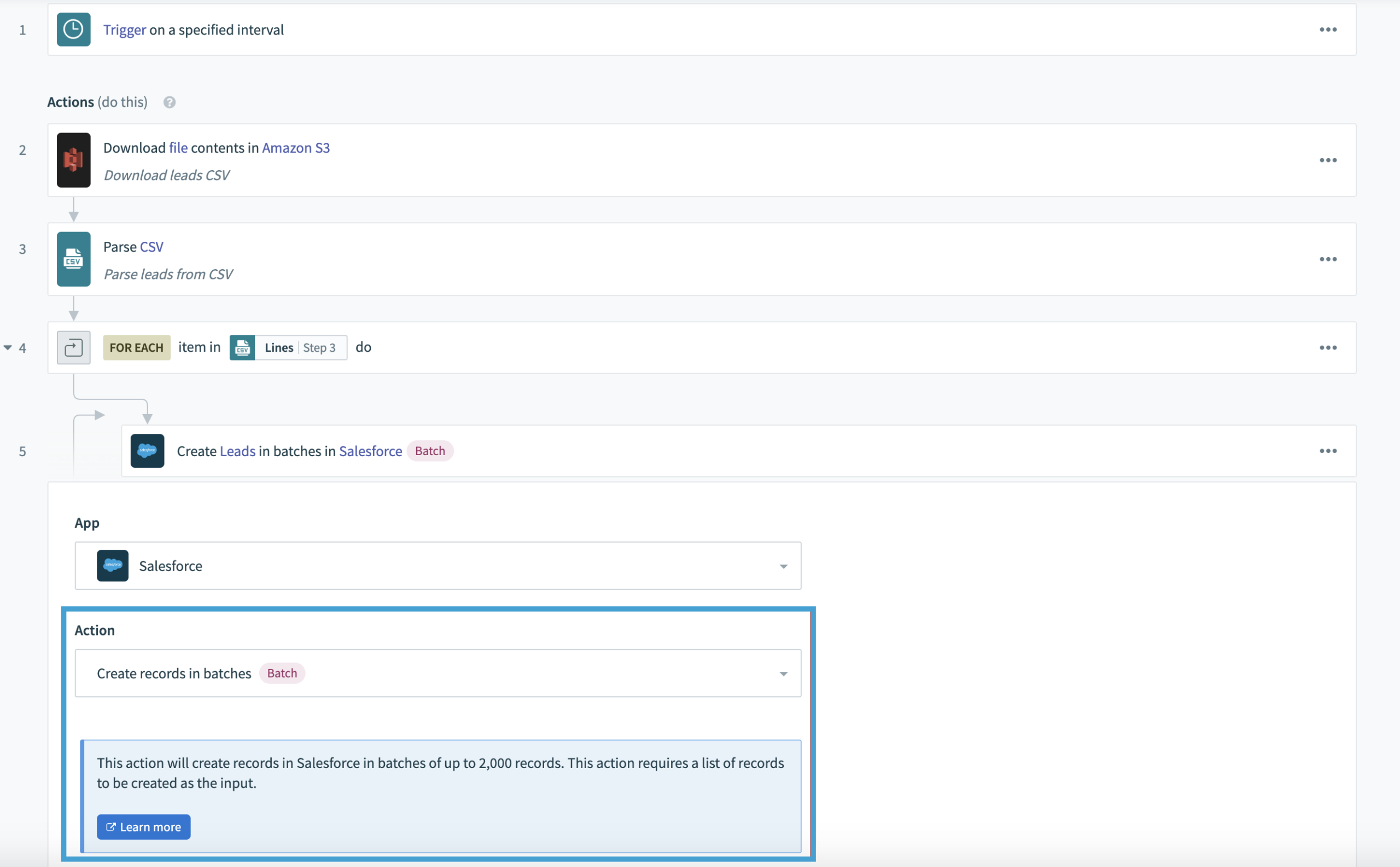
The “Create records in batches” within a For-Each loop saves time by automatically taking care of complex logic
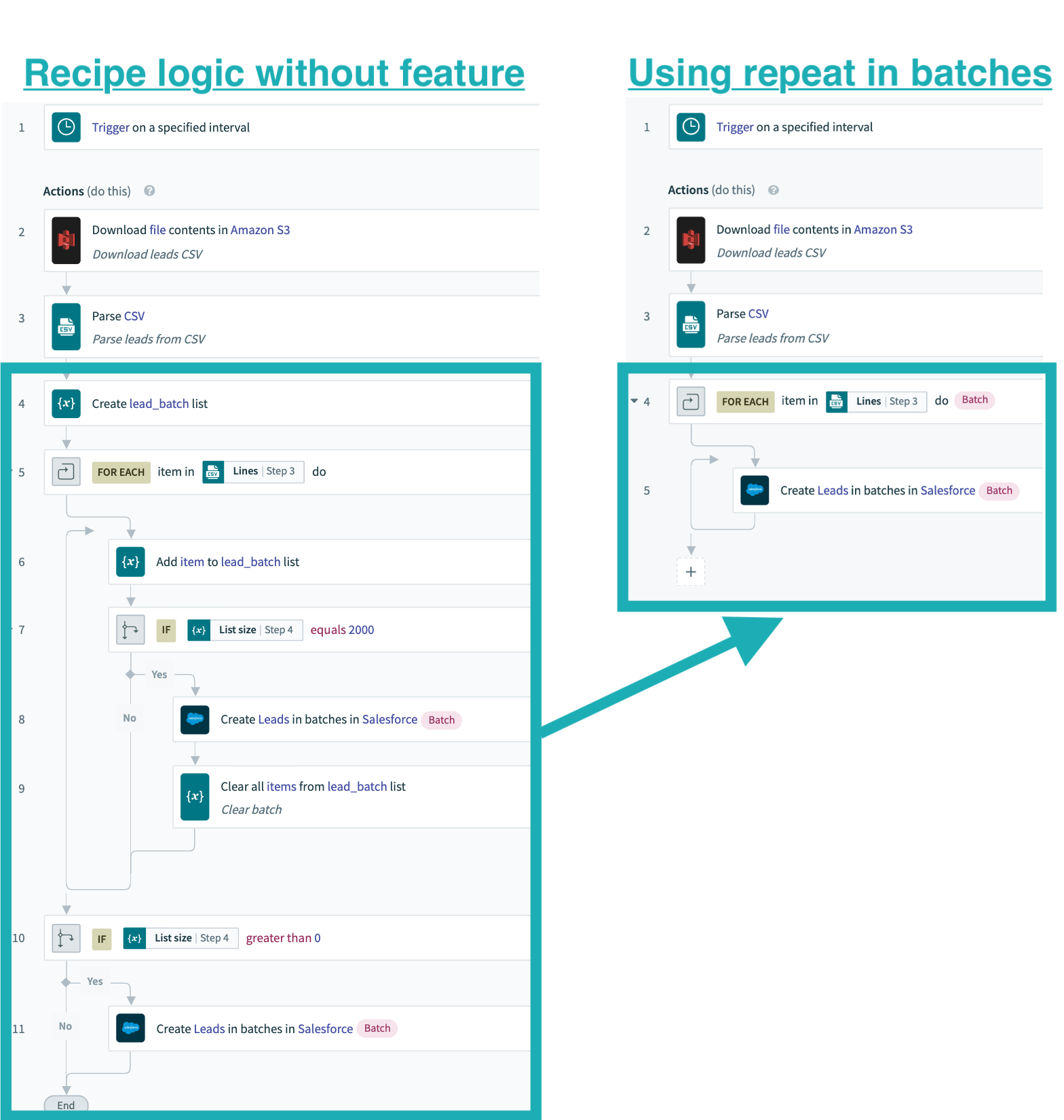
The “Repeat in Batches” feature reduces the number of setup steps required to create a batch process
Learn more about Repeat in Batches
Salesforce connector updates
We made two updates to the Salesforce Connector. First, you can now trigger a recipe off outbound messages! This allows you to use native Salesforce functionality (i.e. Outbound Messages) to kick off a recipe. And that provides for real-time use cases, like point-of-sale or order fulfillment, to be handled more easily.

A Salesforce outbound message can now trigger a recipe
Learn more about the New Outbound Message Trigger
We also updated our “Upsert Records in Bulk” action so any indexed field can be used as the Primary Key, not just external IDs. If you do not store an ID in your external systems and use the Salesforce record ID (or other internal fields) as the primary identifier of a record, you can now use that field as the Primary Key.
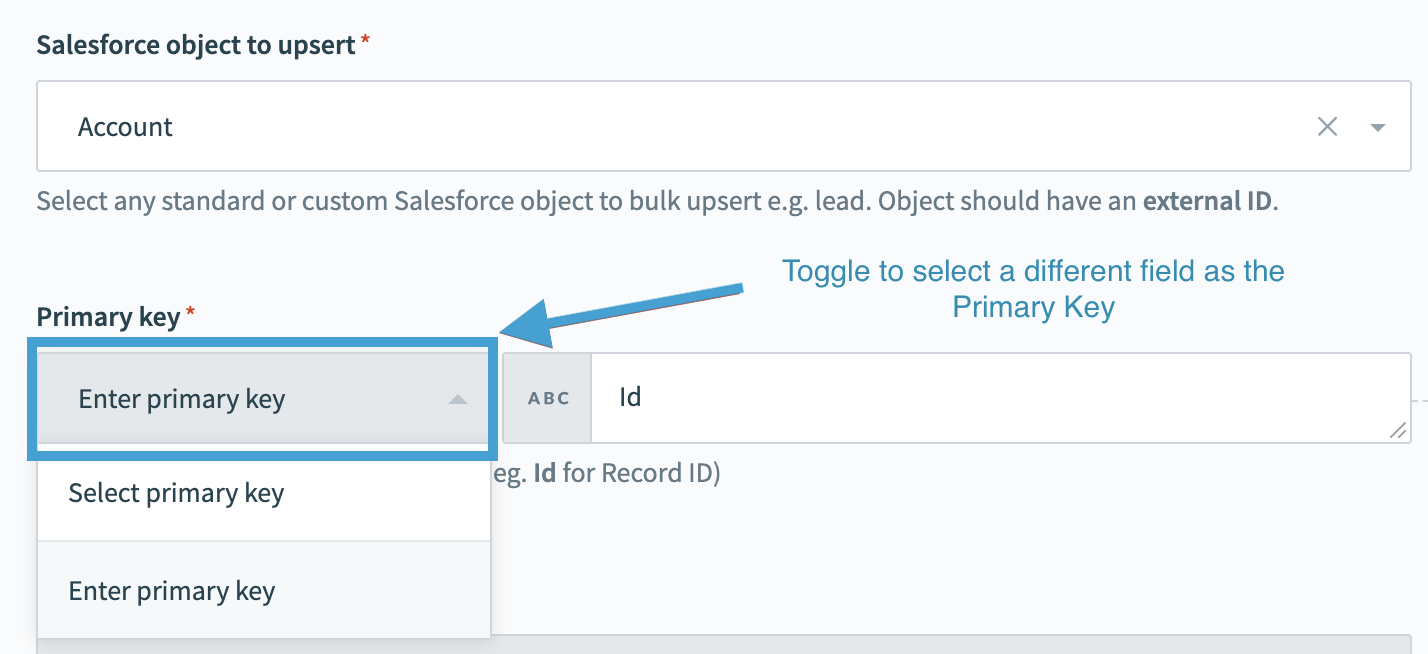
Any indexed field in Salesforce, not just an external id, can now act as the primary key
Learn more about using any indexed field as the Primary Key
More options when encrypting and decrypting with the PGP connector
Workato’s Pretty Good Privacy (PGP) connector is used by companies to meet common security requirements to ensure privacy (encryption) and authentication (digital signature). We enhanced existing encrypt and decrypt actions as well as added standalone actions for signing and verifying. This includes:
- Encrypt action with optional signing
- Decrypt action with optional verification
- New Sign action for digitally signing the data
- New Verify action to authenticate signed content
Learn more about the PGP connector updates
Stay up-to-date with Product Hour
If you want to stay up-to-date, we host a bi-weekly Product Hour webinar where we go over the latest product best practices, present how-to’s, and showcase demos. There’s something for everyone, from power users to non-technical beginners. Go to this link to register for the next one or watch any of our old ones on-demand: https://resources.workato.com/product-hour/
We hope you’ve enjoyed this edition of product updates! To see all of the latest updates, please visit: https://docs.workato.com/product-updates
